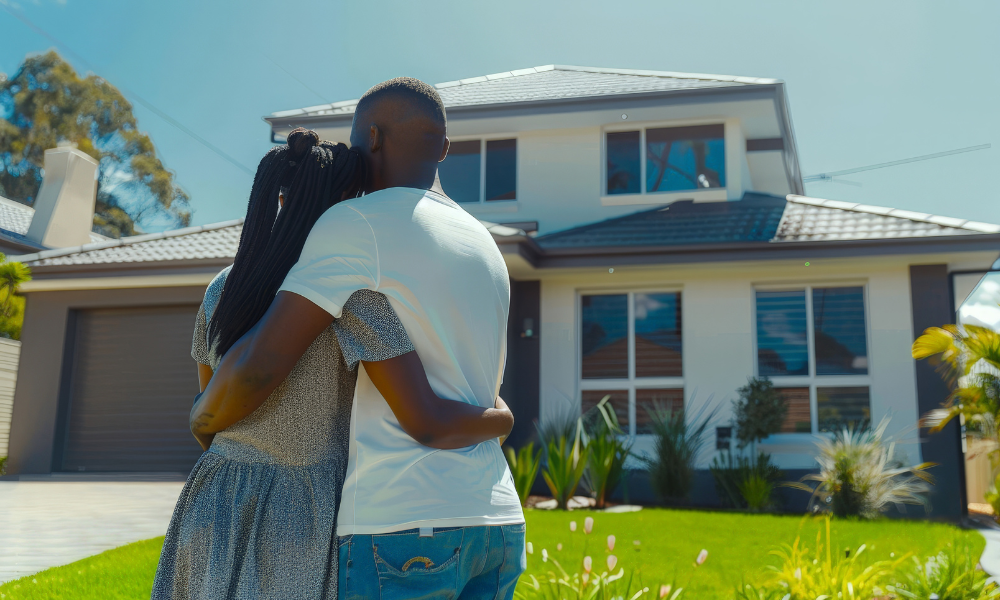Despite rising numbers, affordability challenges continue to limit options

Black first-time homebuyers are entering the market at record levels, but affordability challenges continue to make homeownership an uphill battle, according to a new Zillow survey.
While first-time buyer activity has slowed overall, Black homebuyers have bucked the trend, with 62% of Black buyers purchasing their first home in 2024, compared to just 44% of all buyers, a drop from 50% in 2023.
The long-term trend shows even sharper growth. After plummeting from 47% in 2019 to 35% in 2021, the share of Black first-time homebuyers rebounded to 55% in 2022 and hit a record 63% in 2023, outpacing every other racial group.
"Despite affordability challenges, Black first-time homebuyers are demonstrating a strong commitment to homeownership, a key driver of generational wealth," Zillow senior economist Orphe Divounguy said in the report.
He added that income disparities and difficulty saving for down payments continue to delay home buying, but programs like down payment assistance, first-time buyer tax credits, and flexible lending options are making a difference.
Black households have a median income of $54,896, far below the $95,213 needed to buy a typical US home in 2024 without being considered cost-burdened, meaning only 17.6% of active home listings are affordable to the average Black household. By comparison, 28.2% of listings were affordable for Hispanic buyers, 37.9% for White buyers, and 56.8% for Asian buyers.
High housing costs and strict zoning laws in major metro areas have made it harder for first-time buyers to find homes within reach. Remote work has helped some Black renters relocate to more affordable markets, with Zillow’s data showing that Black renters are 29% more likely than others to be in a position where working remotely makes homeownership possible.
Read next: No 20% down? No problem! The homeownership hack first-time buyers need to knowv
St. Louis is the most affordable housing market for Black buyers in 2024, with 30.3% of listings within reach for a typical Black household. Other relatively affordable cities include:
- Birmingham, Ala. (29.5%)
- Memphis, Tenn. (29.0%)
- Detroit, Mich. (28.6%)
- Baltimore, Md. (25.8%)
- Pittsburgh, Pa. (23.7%)
- Cleveland, Ohio (22.8%)
- Indianapolis, Ind. (22.0%)
- Atlanta, Ga. (19.2%)
- Oklahoma City, Okla. (18.8%)
On the flip side, West Coast metros, including major California cities and Seattle, remain some of the least affordable for Black households.
Stay updated with the freshest mortgage news. Get exclusive interviews, breaking news, and industry events in your inbox, and always be the first to know by subscribing to our FREE daily newsletter.



